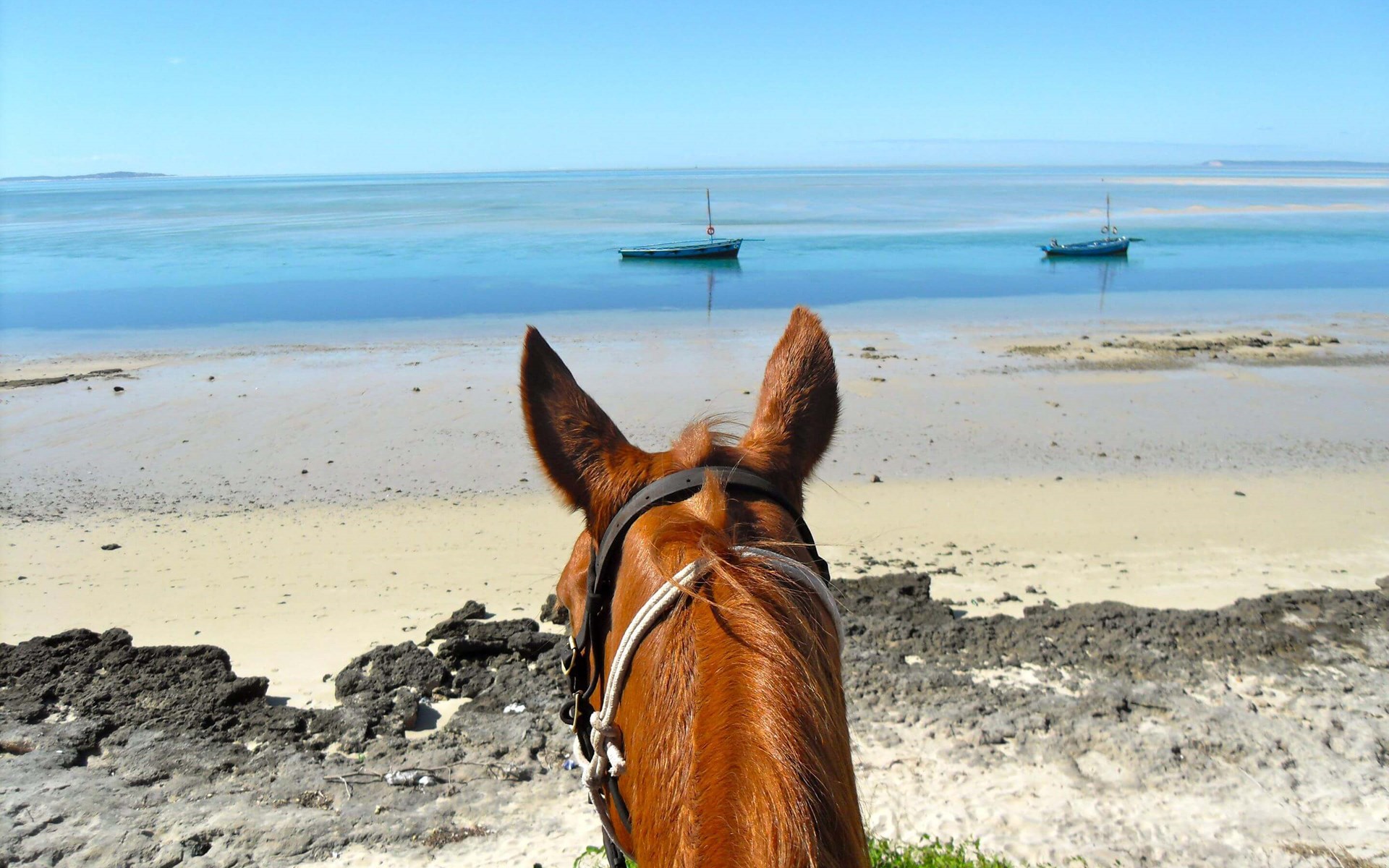Visit Kenya's iconic safari destinations whilst travelling in a responsible way
Here at Wayfairer we take care to ensure that our Kenya holidays offer a unique, authentic and sustainable travel experience for our clients. We urge all visitors to Kenya to travel in a responsible and respectful manner to ensure that tourism has a positive impact on the economy, the environment, and the local communities.
Looking for travel inspiration? Wayfairer trip ideas that will take you to Kenya:
Here are our top ten tips for responsible travel in Kenya:
- Be mindful of local culture, customs and religion, and always respect the local etiquette especially when visiting remote rural areas and the conservative Muslim coast and islands.
- Ensure that you dress modestly and respectfully when entering towns or urban areas and women should always cover their legs and upper arms when outside of the beach resorts. Shoulders and knees should be covered when entering places of worship. Our top tip is to buy a local sarong called a Kikoy, which can be used to cover shoulders, as well as used as a towel, blanket or scarf at other times.
- Whilst on safari if possible you should choose to stay at a camp or lodge within a community-owned conservancy as this helps to generate a sustainable income for indigenous local people.
- Interact with local people and make an effort to learn about Maasai, Samburu, Turkana, Swahili cultures and customs. A great opportunity to gain an insight into the local way of life is through visiting rural villages and markets, or going on a bushwalks with a local guide on community owned land.
- Always ask permission before taking photos of anyone, including children, and respect people’s privacy. We suggest that you try to engage with the locals rather than simply taking pictures. Cultural exchange is a two-way street and you are also an object of fascination
- A visit to a school can be a fascinating experience, but please bear in mind that tourists coming into classrooms every day to take photos can be disruptive to children’s education. If you do visit a school, you should ensure that it is planned and coordinated by a responsible tour guide and authorised by the the head teacher of the school. Gifts and donations should be given to the head teacher rather than the children, who may start to see foreigners as a source of presents and money.
- Never purchase items made from endangered species – including coral, turtle shells or eggs, ivory, fur or bone.
- Buy locally made products such as jewellery, wooden carvings and Maasai blankets at markets, villages and small-scale souvenir shops rather than hotel tourist shops.
- Be adventurous and eat in local restaurants and cafés. Not only does this help to support the local economy, but it will also give you a more authentic holiday experience.
- Travel with a Swahili phrasebook in your hand luggage and make an effort to learn some key words and phrases. The ability to speak some basic Swahili will undoubtedly win you many smiles from the friendly locals who you come into contact with during your time in Kenya. Swahili is easy to pick up for native English speakers as the words are pronounced exactly as they look to an English speaker.
Useful Information:
In August 2017 the Kenyan government introduced a ban on plastic bags. Piles of waste plastic bags are a common sight across Kenya, as in many African countries, and the Kenyan government hopes that the ban will help protect the environment. Those who do not comply with the new rules could face a fine of up to $38,000 or up to four years in prison.
Kenyans are slowly getting used to carrying their shopping using bags made from materials other than plastic. Tourists are also expected to adhere to the ban and travellers coming into Kenya with duty-free plastic shop bags are required to leave them at the airport under the new rules.
We encourage all of our clients to travel with a cotton shopping bag or you can purchase one from a local market in Kenya. In response to the ban one of our preferred partners, Saruni Lodges, sell fabulous Shuka bags (made by Shuka Duka LTD) in their Saruni shops. It is thought that a ban on plastic water bottles in Kenya’s national parks is imminent and in preparation of this Saruni Lodges now provide their guests with aluminium water bottles which can be re-filled at the water stations throughout the lodges.
If you would like to speak to someone about your Kenya holiday plans, call our Luxury Travel Specialists or send us an online enquiry.



















